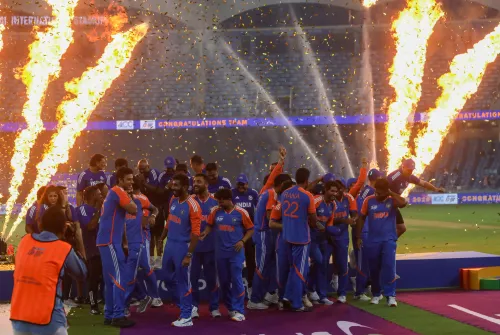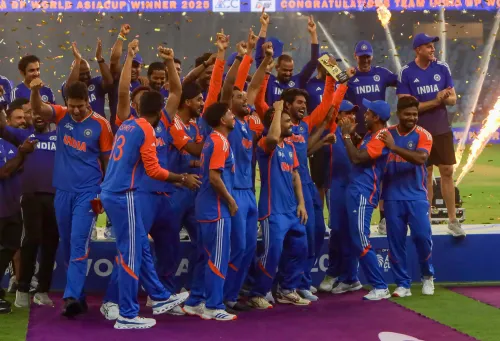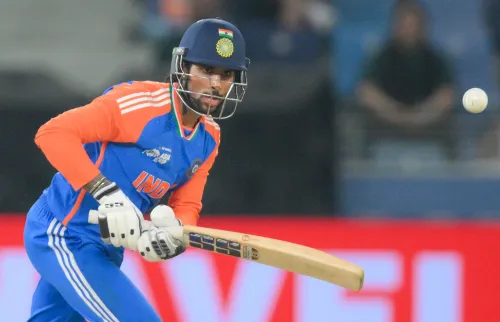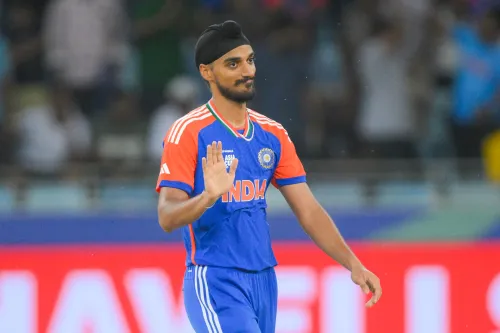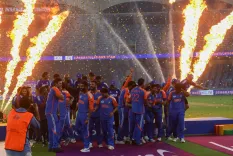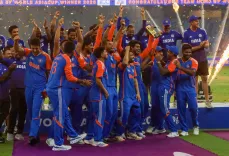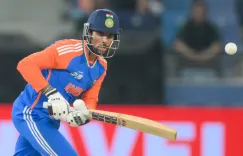Why Did India Players Decline to Accept the Asia Cup Trophy from PCB Chief Naqvi?
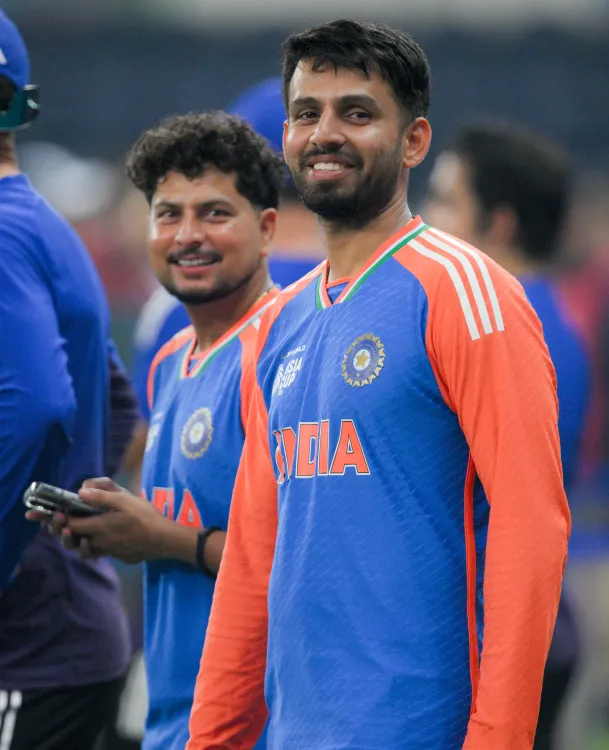
Synopsis
Key Takeaways
- Indian players declined the trophy from PCB chief Naqvi.
- Political tensions influenced the Asia Cup 2025.
- India secured their ninth Asia Cup title.
- Kuldeep Yadav played a pivotal role in Pakistan's collapse.
- Tilak Varma's innings was crucial for India's win.
Dubai, Sept 29 (NationPress) A surprising turn of events unfolded after India’s exhilarating Asia Cup 2025 final victory over Pakistan, as Indian players declined to accept the trophy from Asian Cricket Council (ACC) president and Pakistan Cricket Board (PCB) chairman Mohsin Naqvi.
This decision led to a delay in the post-match presentation, with Pakistan's players also remaining in their dressing room, intensifying the chaos at the Dubai International Stadium.
The incident occurred amid already strained relations between the two teams. The customary pre-final photo opportunity with the trophy, which was planned for Saturday, was canceled after India’s captain Suryakumar Yadav refused to pose alongside Pakistan's skipper Salman Ali Agha and Naqvi.
This year's tournament has been the most politically charged in the Asia Cup's 41-year history, occurring just months after the tragic Pahalgam terror attack. During the group stage and Super Fours matches, India had previously opted not to shake hands with Pakistani players. The final, marking the first-ever India–Pakistan showdown in Asia Cup history, heightened the already intense atmosphere.
As celebrations were anticipated, the off-field drama took precedence. The Indian team’s refusal to accept the trophy from Naqvi, combined with Pakistan’s delayed arrival for the presentation, left the ceremony in a state of uncertainty.
On the cricket field, India clinched their ninth Asia Cup title in a thrilling manner. Pakistan appeared set for a formidable score at 113/1 in the 13th over before dramatically collapsing against India's spinners, losing nine wickets for just 33 runs and bowled out for 146 in 19.1 overs. Kuldeep Yadav was pivotal in this collapse, claiming four wickets, including three in a crucial 17th over. Jasprit Bumrah, Axar Patel, and Varun Chakaravarthy each took two wickets to contribute to the victory.
In response, India faced early trouble at 20/3, but Tilak Varma’s unbeaten 69 runs off 51 balls under immense pressure turned the match around. He formed essential partnerships with Sanju Samson and Shivam Dube before Rinku Singh sealed the win with a boundary, leading India to a five-wicket victory with a ball to spare.

